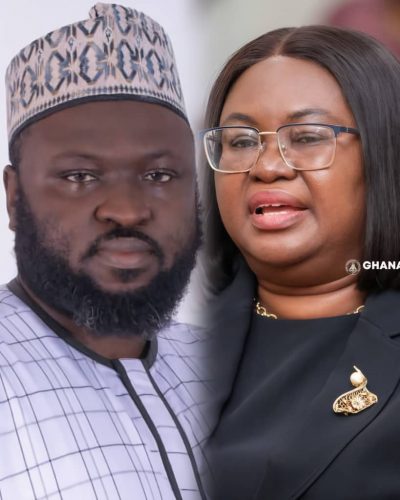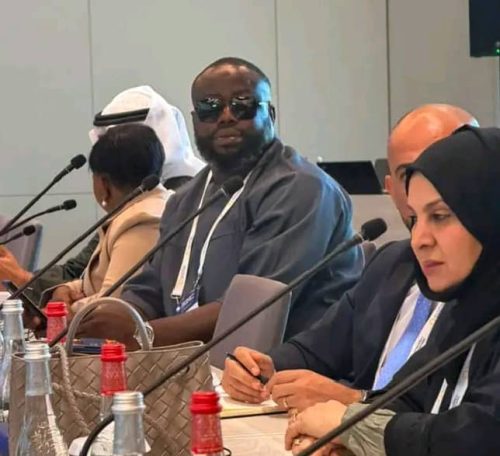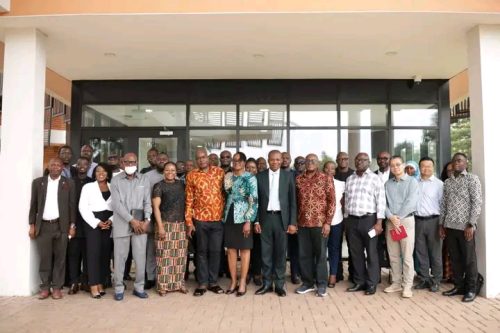

Ghanaian Islamic Scholar, Dr. Abdul-Mushin Baafi has gone ballistic over Justice Hafisata Amaleboba’s stance on the compulsion of Muslim Students of Christian Mission Schools to attend church service held on campus.


In her response to a question posed to her by Hon. Alexander Kwamina Afenyo-Markin during her vetting on Wednesday, June 18th 2025, on the matter, “Justice Amaleboba said she sees no constitutional violation in compelling students to attend religious services contrary to their beliefs.”


Expressing his disapproval of the above in an official statement copied to www.leakyghana.com, Dr. Abdul-Mushin Baafi asserted that the Justices’ stance raises serious questions about her ability to impartially adjudicate cases involving religious freedom and discrimination.

“As a prospective Justice of the Supreme Court, it is crucial that she demonstrates a deep understanding of and commitment to upholding the constitutional right of all citizens, including those from diverse religious backgrounds”, Dr. Baafi noted.
According to Dr. Baafi, the teachings of Quran strongly opposes that, saying religious compulsion is anti-Islam.

Below is a copy of his statement
Compelling Muslim Students to Attention Church Service In Christian Mission Schools; The Bias Assertion of Justice Hafisatu Amaleboba
On Wednesday, June 18, 2025, *during the vetting of Justice Hafisatu Amaleboba for the Supreme Court, a critical question was posed by Hon. Afenya Makin, MP. The question centred on whether Christian mission schools, which have been absorbed and financed by the government through taxpayer resources, can constitutionally compel Muslim students to attend church services.* This inquiry is particularly pertinent given the constitutional guarantees of freedom of worship and the manifestation of religion.
Justice Amaleboba’s response that she sees no constitutional violation in compelling students to attend religious services contrary to their beliefs is concerning.
This stance raises serious questions about her ability to impartially adjudicate cases involving religious freedom and discrimination. As a prospective Justice of the Supreme Court, it is crucial that she demonstrates a deep understanding of and commitment to upholding the constitutional rights of all citizens, including those from diverse religious backgrounds.
Ghana has long been regarded as a beacon of peace and religious tolerance in the region.
The judiciary plays a pivotal role in maintaining this reputation by ensuring that the rights of all citizens are protected and respected. Allowing judges with apparent biases to preside over cases involving religious freedom could undermine the public’s trust in the judiciary and potentially destabilize the religious harmony that exists in the country.
The Islamic perspective on religious freedom, as articulated in the Quran, ‘There shall be no compulsion in religion’ (2:256), underscores the importance of respecting individual choices and beliefs. This principle is not unique to Islam; it is a fundamental human right that is widely recognized and protected under international law and the Ghanaian constitution.
In light of Justice Amaleboba’s response, it is imperative that the President, the Peace Council, and other relevant authorities scrutinize her suitability for a position that demands the highest level of impartiality and respect for the law. Ensuring that our judiciary is free from bias and committed to upholding the constitution is crucial for maintaining the rule of law and protecting the rights of all Ghanaians.
Ultimately, the integrity and credibility of our judicial system depend on the appointment of judges who can demonstrate a strong commitment to the principles of justice, fairness, and respect for the law. As such, it is crucial that we hold our judicial appointees to the highest standards and ensure that they are equipped to handle the complex issues that come before them with sensitivity, wisdom, and impartiality.”
By Dr. Abdul-Muhsin Baafi
(Islamic Scholar)

Enock Akonnor is an experienced Ghanaian journalist, based in Kumasi and currently serves as the CEO and Managing Editor of www.leakyghana.com.
With a wealth of expertise built over many years in the media industry, he has earned a solid reputation as one of Ghana’s most sought-after journalists.
Contact:
📞 +233 541 921 562
✉️ enockakonnor2013@gmail.com








